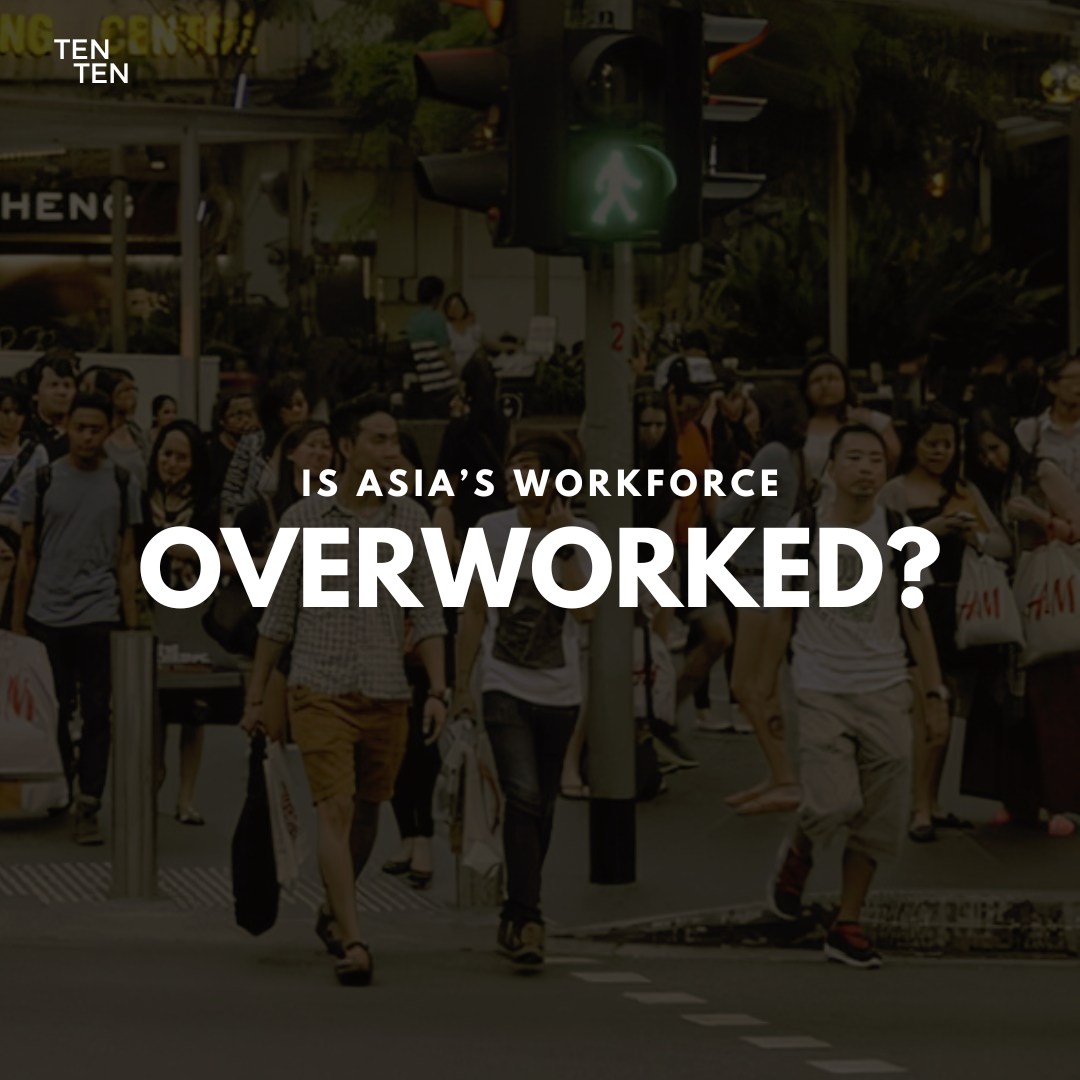The conversation around workplace well-being has gained momentum globally, yet Asia remains at the centre of an escalating burnout crisis. Recent reports indicate that excessive workloads, financial pressures, and a lack of trust between employees and employers are contributing to widespread exhaustion across industries.
In this article we will explore the various reasons Asia’s workforce seems to be getting overworked (and possibly underearning) while also addressing how best to fix these issues.
First off, let’s take a look at:
The Alarming Reality of Burnout
New data highlights the severity of the issue: one in three employees in Asia report experiencing burnout, while 82% are under significant mental health strain. Even more concerning, 35% have been identified as having a high mental health risk profile. The impact on productivity is stark, with Asia’s workforce productivity score at 47.2 out of 100, lagging behind the United States at 66.7 and Europe at 60.1.
Despite 67% of employers in the Asia-Pacific region acknowledging the importance of employee well-being, and nearly half increasing efforts to address it, many organisations struggle to implement effective solutions. Without urgent action, businesses risk not only diminished output but also losing top talent to workplaces that prioritise well-being.
The Role of Technology and Workplace Evolution
A study was conducted among executives, HR leaders and top employers across Asia in order to understand the three major concerns that plague today’s workforce: adapting to new technologies, declining trust in employers, and persistent burnout. While 41% of executives believe that artificial intelligence (AI) investments will drive productivity, 86% fear that less than half of their employees will be able to adapt if their roles change or are eliminated due to automation.
Adding to the problem, more than half of Asian companies have implemented new technologies without changing how they work, resulting in inefficiencies and increased workloads. The gap between technology adoption and workforce adaptability is most evident in China, where nearly a third of HR managers express confidence in successful human-machine collaboration, and most executives are concerned about employees’ ability to adjust.
Declining Trust and the Cost of Unfulfilled Promises
Trust between employees and employers has eroded sharply, dropping a little too steeply between 2021 and 2024. A key driver of this decline is the failure to deliver on promised career growth and promotion opportunities. With financial strain cited as the leading cause of burnout, employees in Asia spend an average of six hours per month at work worrying about their finances, affecting engagement and performance.
What Can Businesses Do?
For companies looking to support their employees and build a sustainable, high-performing workforce, a holistic approach is required:
Implement Well-being Programs:
Introduce comprehensive well-being initiatives, including mental health support, mindfulness practices, flexible hours, and mandatory time-off policies to combat burnout, enhance work-life balance, and boost productivity.Invest in Reskilling for Technology:
Provide ongoing training to help employees adapt to new technologies. Focus on AI, automation, and upskilling programs to ensure employees feel confident and capable in a tech-driven work environment.Rebuild Trust with Transparency:
Focus on clear communication about career growth, set realistic promotion expectations, and provide consistent feedback. Address financial stress through compensation strategies and wellness programs to rebuild trust and engagement.
A New Way Forward
The future of work in Asia depends on businesses’ ability to balance technological progress with a people-centred approach. At TENTEN Partners, we work with organisations to design hiring strategies that prioritise employee well-being, ensuring that companies attract and retain top talent in an increasingly competitive landscape. Addressing burnout, rebuilding trust, and investing in skills development are not just ethical imperatives, they are business necessities.








